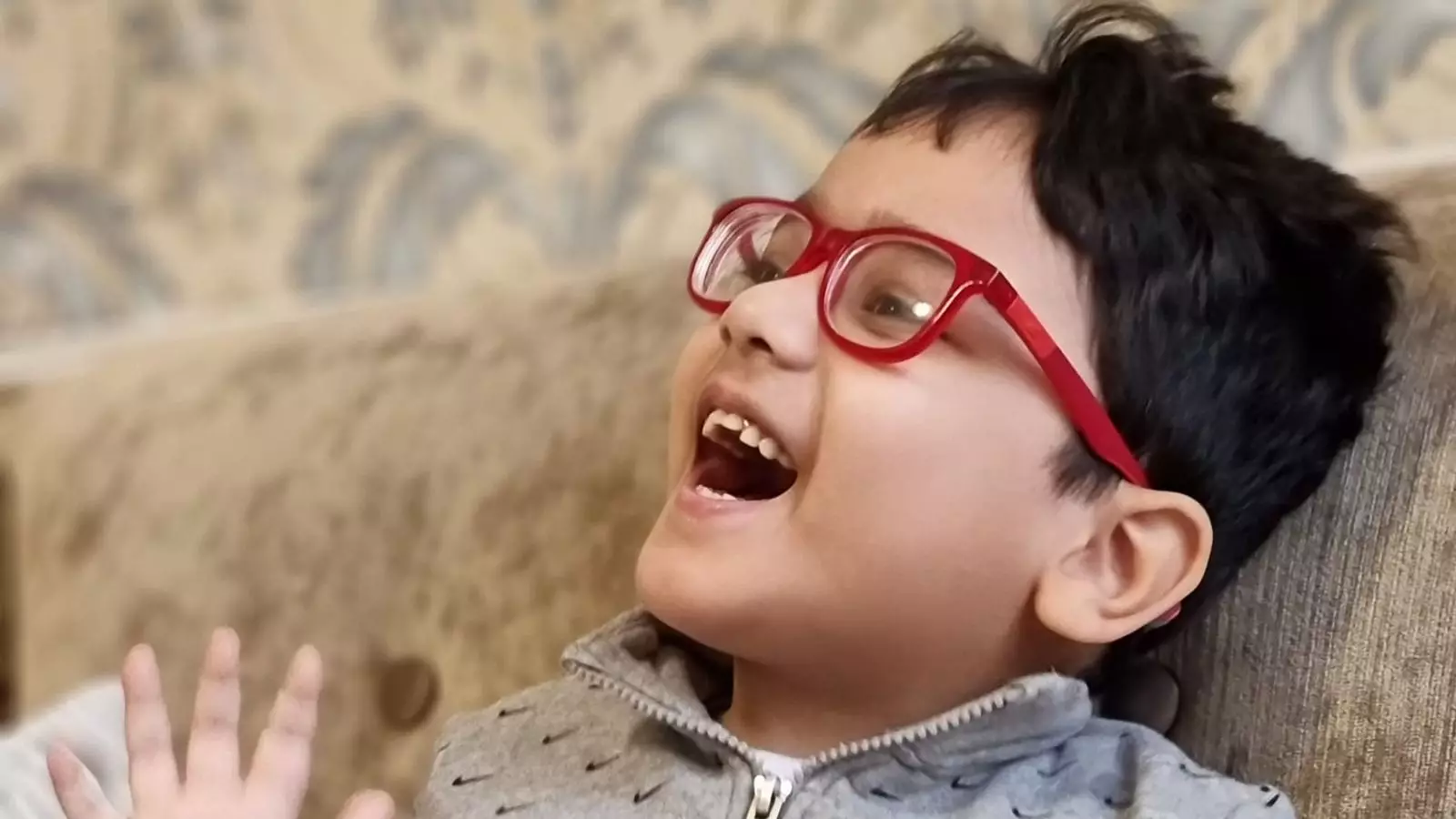In the heartbreaking saga surrounding the death of five-year-old Muhammad Ayaan Haroon, the emotional toll on his family has been compounded by reports of inadequate medical care and the distressing conduct of hospital staff. Ayaan, who suffered from respiratory issues and a rare genetic disorder known as Hace 1, was taken off life support at Sheffield Children’s Hospital on March 13, 2023. The aftermath revealed not only the tragedy of his untimely passing but also highlighted systemic flaws within the healthcare service that warrant a critical examination of standards, responsibilities, and the essential nature of bereavement care.
Response to Ayaan’s Care: A Family’s Grief and Outrage
The anguish of Ayaan’s father, Haroon Rashid, is palpable as he recounts a series of errors he believes ultimately cost his son his life. Rashid’s assertion of a “catalogue of catastrophic errors” serves as a powerful indictment of the hospital’s practices. An investigative report by Niche Health and Social Care Consulting corroborated some of these claims, noting that certain care protocols were not adhered to, which contributed to a delay in providing Ayaan with critical oxygen therapy and admitting him to the pediatric intensive care unit (PICU). Despite these findings, the report controversially concluded that such changes may not have notably altered Ayaan’s fate, a statement that his family vehemently disagrees with.
Rashid’s demand for a second investigation does not originate from a place of mere grievance, but as a quest for accountability and the hope that lessons learned could prevent future tragedies. This reflects a broader sentiment that families experiencing the loss of a child in medical settings deserve not only answers but also the assurance that systemic failures will be addressed effectively. The emotional scars left by such experiences highlight the crucial need for systemic reform within healthcare institutions, ensuring that families are not simply numbers in a healthcare equation but valued partners in the care process.
Compounding the family’s distress was the report’s finding that Ayaan’s family received “poor” bereavement care and that the hospital staff’s awareness of the family’s cultural needs was “substantially inadequate.” The lack of consideration for the family’s cultural wishes during a sensitive time—performing last rites—further exacerbated their trauma, showing a stark disregard for the principles of healthcare equity. In a diverse society, cultural sensitivity must be woven into the fabric of healthcare practices, especially when dealing with life-and-death situations. The emotional ramifications of neglecting this aspect can be devastating, underscoring the need for comprehensive training for healthcare providers on cultural competence.
The failure to create a respectful and compassionate environment during Ayaan’s last moments—marked by reports of staff laughing in an adjacent room—paints a grave picture of disconnect between patient care and human decency. Such incidents should act as a wake-up call for healthcare staff about the profound impact of their actions and attitudes, emphasizing that medical settings should operate with an unwavering commitment to respect and empathy.
Ayaan Haroon’s case is emblematic of larger systemic issues plaguing healthcare facilities. The overcrowding in the pediatric intensive care unit, the delay caused by a lack of available beds, and the apparent insufficiency in staff training highlights an urgent need for comprehensive assessments of healthcare infrastructure. Each reported lapse in Ayaan’s care served to underscore a revealing vulnerability within the hospital’s operations, questioning the adequacy of resources allocated toward pediatric care.
As Ayaan’s family continues to seek justice and accountability, their story serves as a potent reminder of the human element in healthcare. The moral responsibility of medical professionals extends beyond mere protocols—it’s about caring for the patient as a whole and ensuring the bereaved family receives the empathy and support they require during their darkest hours. Moving forward, it is essential that healthcare systems not only implement lessons learned from tragedies like Ayaan’s but actively cultivate a culture rooted in compassion, respect, and dignity for every individual who walks through their doors.
The tragic unfolding of Ayaan’s story should propel health authorities and institutions toward rigorous introspection and reform. Advocacy for transparency, proper bereavement care, and cultural sensitivity is paramount to prevent similar cases in the future, honoring the memory of young lives like Ayaan’s through lasting, positive change.

